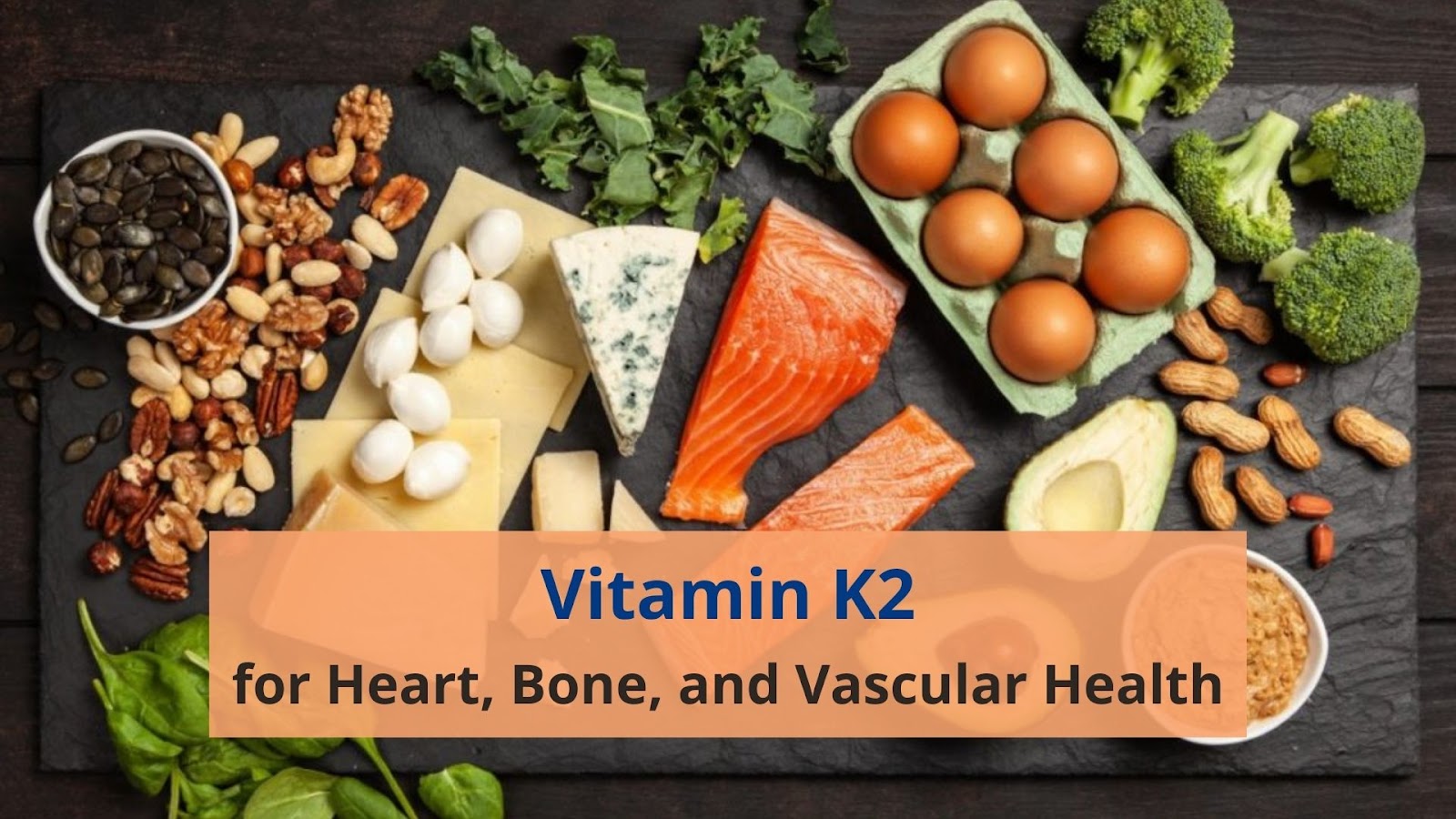What is vitamin K?
Vitamin K is a class of vitamins, like citrus fruits are a class of fruits.
Oranges, grapefruits, limes and lemons…They may grow on different trees and have different tastes, but at the end of the day, they’re all citrus fruits. It makes sense for them to be grouped together because they share a lot of common traits.
The same is true of vitamin K. K vitamins are fat-soluble, meaning they dissolve in fats and oils. And they play important roles in blood clotting, bone health and heart health.
What we commonly think of as vitamin K includes vitamin K1 (also called phylloquinone), as well as vitamin K2 (menaquinone). They work differently in your body and come from different food sources.
Vitamin K plays a big role in blood clotting, bone health and heart health. There are two forms: K1 (found in plant foods) and K2 (found in animal and fermented foods).
Vitamin K2 plays a role in blood clotting, heart health, and bone health. But you may not consume vitamin K2-containing foods often with the diet.
Many people have never heard of vitamin K2. This vitamin is found in fewer foods than K1. It’s found in animal-based foods, like beef liver and cheese, while K1 is found in plant foods.
However, this powerful nutrient plays an essential role in many aspects of your health. In fact, some think that vitamin K2 may be the missing link between diet and several chronic diseases.
Vitamin K2 found in animal products and fermented foods. Most menaquinones are also produced by bacteria in the human gut. Menaquinones vary in length from four to 13 units. The number of units is denoted by the number after MK, so MK-4 has four units, MK-5 has five units and so on. The most well-researched menaquinones are MK-4, MK-7 and MK-9.
It’s been suggested that vitamin K2, with its longer half-life compared to vitamin K1, travels throughout the body and plays a larger role in bone, cartilage and soft tissue. The half-life of a nutrient measures how long it takes for half of a nutrient to be removed from the body through metabolism and excretion.
Benefits of Vitamin K2
Bone Health
Vitamin K2 activates osteocalcin, a protein that helps bind calcium to the bone matrix, contributing to bone mineralization and strength. Indeed, a 2022 Frontiers in Public Health systematic review and meta-analysis concluded that vitamin K2 can help prevent and treat osteoporosis in postmenopausal women by indirectly promoting bone mineralization and bone strength.
Vitamin K2 may be even more effective when used in combination with other treatments such as vitamin D, calcium or alendronate, research suggests. The Frontiers in Public Health review also suggests that vitamin K2 may help prevent fractures.
Cardiovascular Health
Vitamin K2 may play a role in cardiovascular health by helping to prevent arterial calcification, which is the accumulation of calcium in the arteries. By activating a protein called matrix Gla protein, vitamin K2 helps inhibit calcium deposits.
Brain Health
Antidepressant Effect in Individuals With PCOS
Symptoms of Vitamin K2 Deficiency
Inadequate vitamin K2 intake is more common than vitamin K1 since most people get enough vitamin K1 from foods. Suboptimal vitamin K2 intake can contribute to increased risk of osteoporosis, fractures, coronary arterial calcification, heart disease and dental issues, etc.
SR Bio supplies high-quality vitamin K2 ingredient powder. Maybe SR Bio is the supplier you are looking for. If you need it, please contact SR Bio to communicate details.





